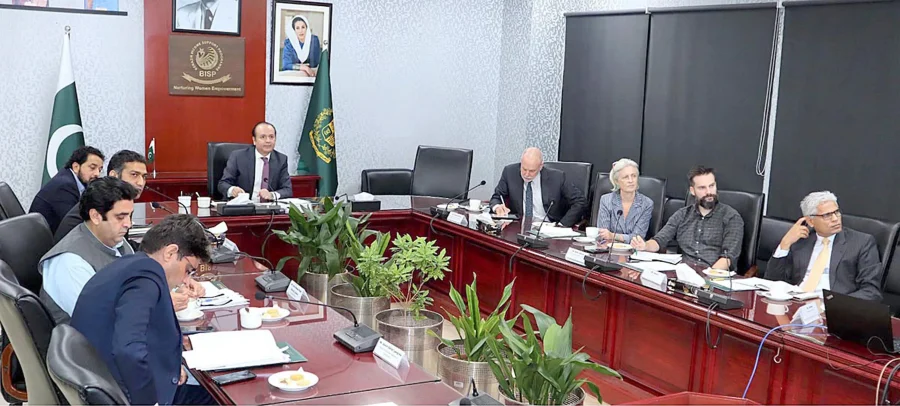A high-level Mission from the Food and Agriculture Organization of the United Nations (FAO), led by Benjamin Davis, Director of the Inclusive Rural Transformation and Gender Equality Division at FAO HQ Rome, called on Secretary Benazir Income Support Programme (BISP), Amer Ali Ahmed, to discuss various initiatives of the programme.
During the meeting, Secretary BISP provided an overview of the BISP and its initiatives undertaken by it.
The FAO delegation also included Mark Johnson, Social Protection Expert at FAO HQ Rome, Bhalla Economist, also from FAO HQ Rome, Garima, Economist at FAO HQ Rome, and Aamer.
The meeting is part of their 5-day visit to Pakistan aimed at identifying technical support from FAO on poverty graduation. Secretary BISP underscored the crucial role of the Benazir Income Support Programme in providing cash support to the most vulnerable and marginalized segments of Pakistani society.
He highlighted the significance of the comprehensive dynamic database maintained by BISP, which serves as the foundation for effective programme’s implementation.
During the meeting, Secretary BISP informed the delegation that the Benazir Income Support Programme currently provides cash assistance to over 9 million families.
He highlighted that the programme identifies women as the principal beneficiaries of their families. Furthermore, he emphasized how this programme is transforming the social landscape of Pakistan.
Ahmed also shared that there are currently 488 operational Nashonuma Centers under the Benazir Nashonuma Programme.
He welcomed the suggestion of conducting post-impact analysis on shock-affected areas, as it would provide an additional filter for targeting beneficiaries, further improving the effectiveness of the programme.
Furthermore, Secretary BISP highlighted the significant role played by the programme during the floods that occurred in August last year.
Benazir Income Support Programme collaborated with provincial governments to provide targeted subsidies in the form of cash assistance and flour to affected beneficiaries.
The participants were also briefed on the dynamic registry which reflects the changing social status of beneficiaries.—APP










